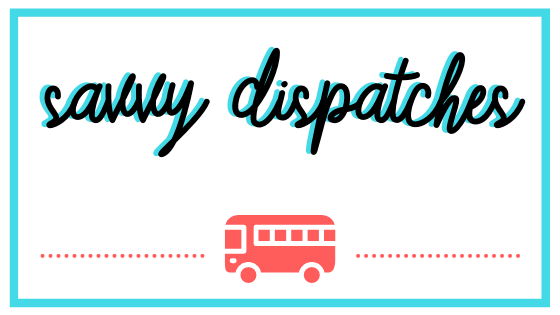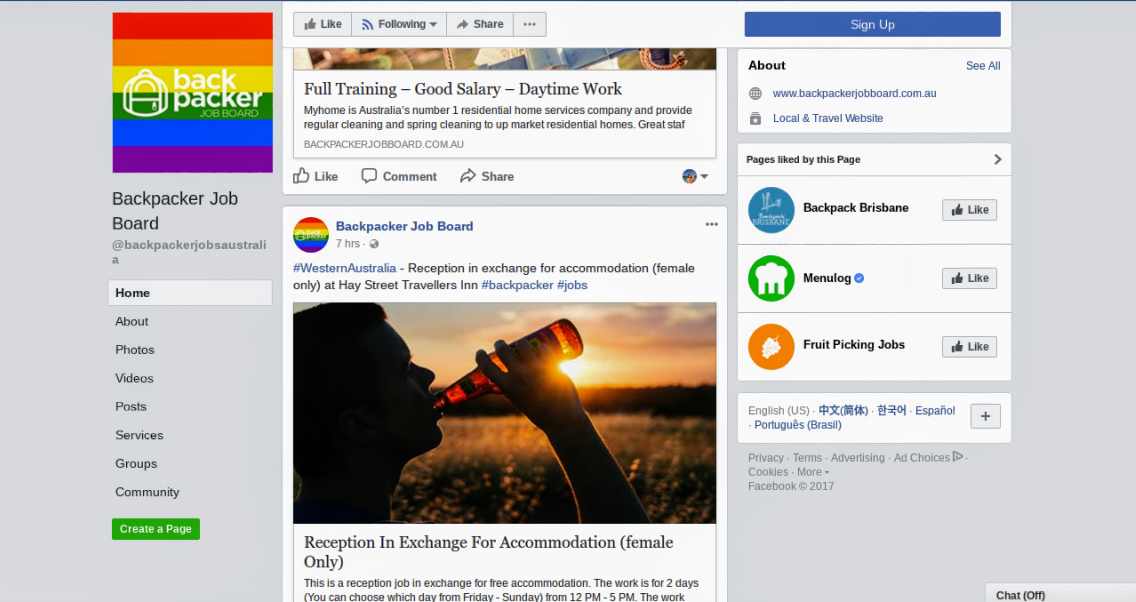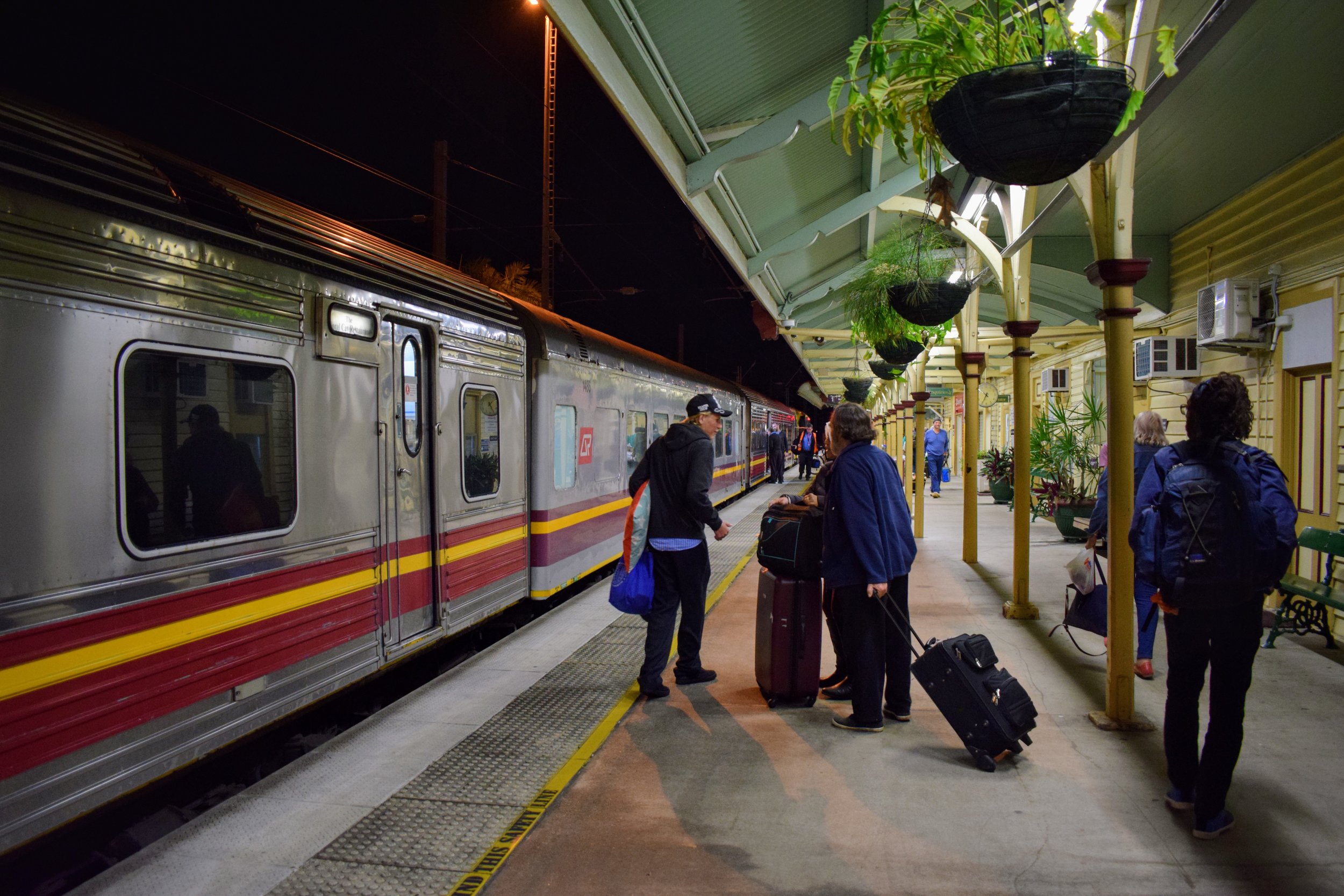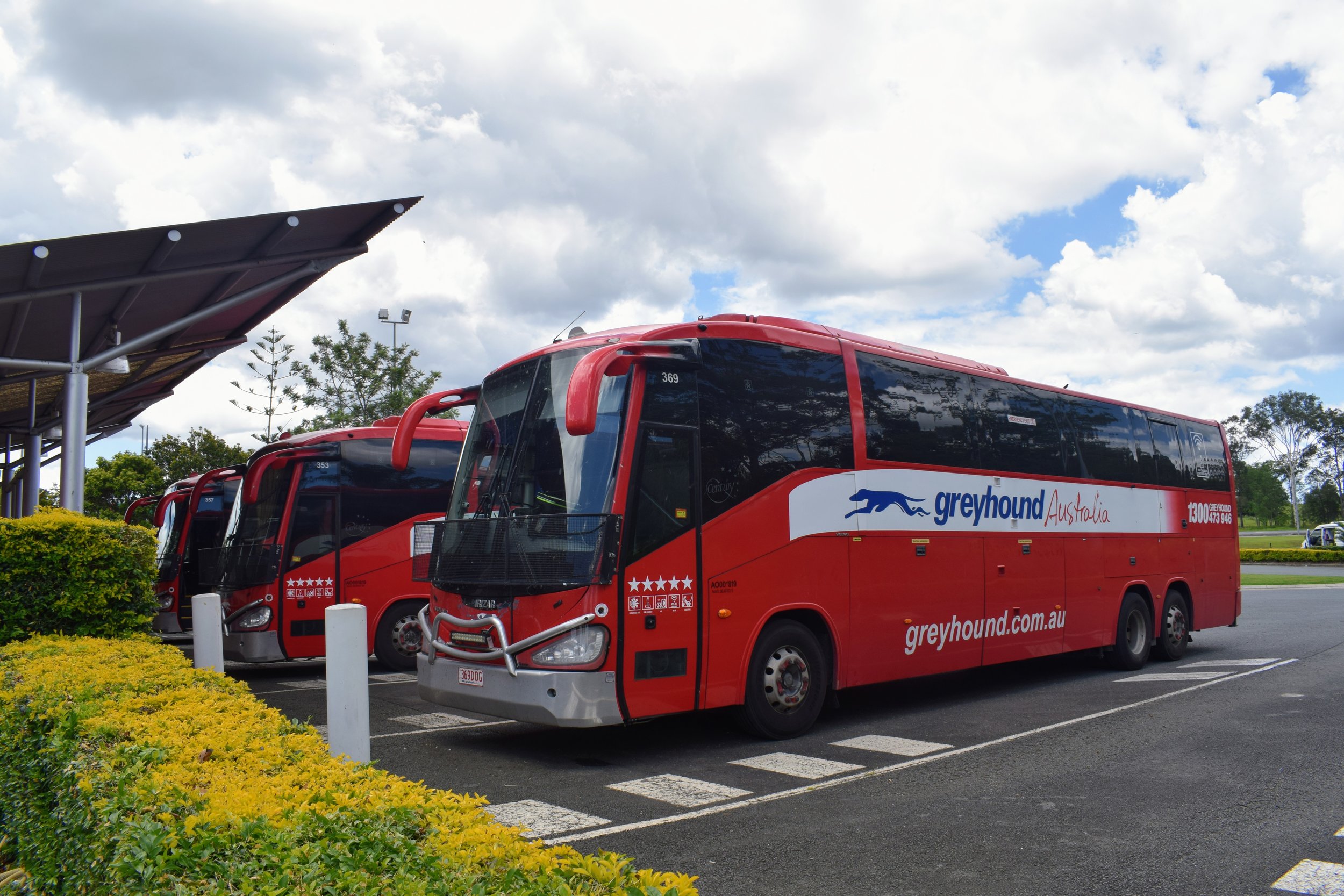Ultimate Australian Working Holiday Guide
G'day readers! Today I'll be sharing with you a very comprehensive guide on Australian Working Holidays. I hope you will find this post to be helpful whether you're only considering the visa, you're currently in the process of applying, or you're already here in this country-continent.
Just FYI, this is a long post. To make it more digestible, I've made an index for you all:
1. Why Australia?
2. Applying for the Visa
3. What Happens When You've Been Accepted
4. Getting a Job
5. Finding Accommodation
6. Getting Around
7. General Living & Working in Australia Advice
Ready? Ok, let's go....!
1.
Why Choose Australia for a Working Holiday?
Melbourne as seen from our flight with Qantas last month.
Why not Australia, really? There are so many reasons why this country is a great place to work and travel. First of all, there's the beautiful scenery - think Uluru/Ayer's Rock, Sydney Harbor, coastal beaches, the Great Barrier Reef, rain forest, the Outback. Then, there's the super cute unique wildlife: kangaroos, koalas, quokka.... Not to mention the potential money to be made! Did you know that in Australia, the minimum wage is $18.29 AUD an hour? Back home in the States, minimum wage is a pitiful $7.25 USD. At the current exchange rate, I'm still making about $14 USD per hour here. Basically, that's nearly double the federal American minimum wage. Pretty appealing.
2.
Applying for a Working Holiday Visa
In order to apply for your visa, you need to visit the Australian Online Immigration Portal. Once in the portal, you'll want to click the "New Application" button. From there, you'll see the following page. Click the option for "Work & Holiday" as shown below and then click the blue arrow to continue to the Working Holiday section.
Types of Visas: 417 vs 462
Which type of visa you'll be applying for depends on where you are from.
"First Working Holiday" visas (subclass 417) are for people from the following countries: Belgium, Canada, Cyprus, Denmark, Estonia, Finland, France, Germany, Hong Kong, Republic of Ireland, Italy, Japan, Republic of Korea, Malta, Netherlands, Norway, Sweden, Taiwan, and the United Kingdom.
"Work & Holiday" visas (subclass 462) are for people from Argentina, Bangladesh, Chile, China, Hungary, Indonesia, Israel, Luxembourg, Malaysia, Peru, Poland, Portugal, San Marino, Singapore, Slovak Republic, Slovenia, Spain, Thailand, Turkey, USA, Uruguay, and Vietnam.
As an American, I applied for and received the 462 Work & Holiday visa. Unlike 417 applicants, I had to provide proof of education. In my case, I just politely asked my Mom to forward me a picture of my university diploma. The education requirement for US residents is only for proof of secondary school completion, though, so if you don't have a university degree, you can attach a copy of your high school diploma or GED. Non-US residents applying for the 462 visa need to have proof of university level education of at least two years. Also, non-US applicants need to provide a letter of support from their home country's government declaring that they are allowed to enter Australia and prove that they have functional mastery of the English language.
General Requirements
In order to get your first working holiday visa (417 & 462), you'll need to meet the following requirements:
Be between the ages of 18 & 30
Hold a passport from at least one of the following countries: Argentina, Austria, Bangladesh, Belgium, Canada, Chile, China, Cyprus, Czech Republic, Denmark, Estonia, Finland, France, Germany, Hong Kong, Hungary, Indonesia, Republic of Ireland, Italy, Israel, Japan, Republic of Korea, Luxembourg, Malaysia, Malta, Netherlands, Norway, Peru, Poland, Portugal, San Marino, Singapore, Slovenia, Spain, Sweden, Taiwan, Thailand, Turkey, the United Kingdom, the United States, Uruguay, and Vietnam.
Must not have had an Australian working holiday visa (462 or 417) prior to this.
Have approximately $5,000 AUD to support yourself upon arrival.
Have no dependent children accompanying you on your working holiday.
Have no outstanding debts to the Australian government OR have arranged to repay outstanding Australian debts.
Be ready to answer a lot of questions about your health and criminal background. For example, the application will ask if you have any diseases or if you've ever been convicted of a number of different crimes.
This is a screen grab of my completed app. Look at all these crime-related questions they asked!
You may also be asked to provide the following;
+proof of health (via a health exam by an approved provider)
+a police record for proof of character
+biometric identification such as fingerprints (generally only required of people from France, Bangladesh, & Malaysia)
I was not asked to provide proof of any of those things & don't know of anyone else who has. However, my experience obviously does not apply to everyone. Be aware that this may be asked of you during your application process.
Documentation to Submit
Unlike New Zealand's application process, the Australian government requires that you actually submit documentation in order to prove that you meet the requirements of the visa.
These are the items that you'll need to scan, upload, or have on hand when applying for your visa:
Your passport. As with any visa, it's necessary to provide details from your passport.
Details from a second identity document. In my case, I just manually input the details from my Virginia Driver's License.
Proof of Education. Not only did I have to upload a diploma because I was applying for the 462 visa, but the application asked me when I was in secondary and post-secondary school. I had to put not only the years that I was in school but also guess which actual days of the month I started and graduated. That was tough. Luckily, my possibly-slightly-off days didn't matter. I can't imagine the Aussie govt is going to call up your high school and ask for the calendar date that was your first day of school.
Proof of Funds. Remember that requirement that you have at least 5,000 AUD in funds? You need to have it now, when you're applying. I submitted my most recent bank statements as well as my credit card statement.
A recent passport-sized photo of you AND a scan of your actual passport.
Cost
The Australian Working Holiday visas (417 & 462) are not cheap. They each cost $440 AUD. Keep that in mind when budgeting for you pre-trip costs.
Extensions
If you decide that you might be interested in doing two years of a Working Holiday instead of just one, you can apply to extend your visa after you arrive. However, you must first complete 88 days of paid work in a rural area of Australia. There are even more specifics on the type of work you need to do which you can check out yourself on the Australian immigration website. Check here for Visa 462 and here for Visa 417. Just know that generally your work will be remote and agricultural in nature.
3.
What Happens When You've Been Accepted?
Conrgatulations!! You've got your visa! That's fantastic. Now it's time to think about planning.
A. Restrictions
You have one year (12 months) from your date of entry into the country to complete your Working Holiday. Also, according to the Australian government: "You can do any kind of work over the course of your 12 month stay in Australia, however the conditions of your visa limit you to a maximum period of six months work with any one employer."
Did you know that you can also take classes with a Working Holiday visa? Again, according to the Aussie government website, "You can study in Australia for up to four months. Four months means 17 weeks of actual study."
B. What To Pack
Well, your visa is for an entire year. Whether you only stay a few months, do the whole year, or extend to two years, you should be sure to be prepared for any type of weather. If you want an idea of what I packed for inspiration, check out my post on What's In My Pack: Australian Working Holiday.
C. Planning: Where should I go first?
Honestly, flying into any major Aussie city would be a good way to start. For instance, we started out in Brisbane. That worked out well for us because we were arriving in the Southern Hemisphere Winter and wanted warmth. Not only that, but we wanted the cheapest flight into Australia from our stay in Vanuatu and Brisbane was IT. Queensland is a massive state but it sort of has everything (wildlife, Outback, Great Barrier Reef!) so I do think Brisbane is a good start for that reason. That being said, we just moved to Melbourne for a job. There's a lot of work down here in Victoria and Melbourne is an amazing city with some of the best food and culture in the country.
Brisbane at night.
D. Must-Dos When You Arrive
Ok, now you've narrowed it down and bought tickets into a major Aussie airport. Now what? You should probably start by booking accommodation for the first few nights in an Airbnb or hostel. Then, the best way to figure out where to go/ what work to do is to first get the following items:
- An Australian CV (did you know resume standards are not the same all around the globe?)
- An Australian SIM card and/or Australian mobile phone. We first bought a SIM with Vodafone but I would not recommend them. As soon as you leave a large a city or town, you have zero service. We ended up going with Telstra because they are the largest service provider here in Aussie. I've been pretty happy with our basic pre-paid plan.
Now that you have your CV and Australian mobile number, it's time to start looking for a job...
4.
Getting a Job
A. Before You Start: Bank Accounts & Tax File Number
One of the first things you should do when you get to Australia is open a basic checking account. How else is your future employer going to pay you? Anyway, it's pretty straightforward. Take your passport with you to the nearest bank and request to meet with a staff member to discuss opening a new account. Emmett and I did this at ANZ - it only took us about 45 minutes. You don't even have to have an Australian address (at least not at ANZ). You can just request that your new debit card be sent to the local bank branch. That can be your best choice if you're worried about the security of accepting mail at a Backpackers Hostel
Next on the agenda: Your Tax File Number. Your tax file number is what you MUST have to legally work in Australia. It's so that you can be taxed. (Don't worry, you'll get a lot of taxes back when you file for Aussie taxes later on). Apply here. It's an incredibly painless process. Again, all you really need is your passport. In this case, though, you also need an Australian mailing address.
B. BE CAREFUL
As sad as it may sound, some employers will try and take advantage of backpackers here for their Working Holidays. Especially non-native English speakers. In fact, wage theft and harassment of backpackers is unfortunately all too common here. I have a few tips that I've picked up on avoiding being exploited as a Working Holiday-goer.
Here's how to be careful when seeking employment on your Working Holiday:
+ Be wary of hostels that promise you can find farm work right away but yet stay vague about what work that will be. Some times these places act like they're offering you a deal to stay with them and work on a local farm but more often than not they overcharge you for rent and or shuttling to & fro your job.
+ Avoid applying for jobs that require you first register for an Australian Business Number (ABN). That means that you'll be an independent contractor and your taxes will go way up as a result. Jobs that ask you to get an ABN right away (especially when you have no prior experience as an independent contractor) generally don't have your best interest in mind.
+ Know that if it sounds to good to be true, it probably is. I have seen so many jobs that advertise "Work and travel! Make tons of friends! Party every night!!" Sketchy, right? Most of these jobs appear to be sales-based jobs where you get paid on commission. Maybe that's something you're interested in, but I think it can more often than not leave you financially insecure.
+ Don't sign a contract until you feel comfortable with all of the work involved. Enough said.
+ If somebody does exploit you or you become a victim of wage theft, please report it to the Australian Government Fair Work Ombudsman.
C. Applying Online
Backpacker Jobs has a real website but I found that following their Facebook page was the easiest way to stay on top of job offers. Plus they have a lot of dumb yet amusing stock images like this one.
There are a lot of websites that cater to jobs for backpackers. I've had the best luck and seen the most variety in listings on Backpacker Jobs Australia and Gumtree. As always, be careful to suss out whether or not a job is legitimate or not to the best of your ability.
D. Applying in Person
Honestly, the age-old show up to a place and hope they're hiring trick is always an option. Try to hit places that you already have some experience with (i.e. Cafes if you've been a waitress, shops if you've been in retail). Sometimes old-fashioned is the best way to go.
E. Certifications, etc.
There are two types of certifications that I see come up on job postings the most here in Australia. Those are the RSA (Responsible Service of Alcohol) Certificate & the General Construction Induction a.k.a. White Card. I personally have the white card and it was honestly one of the easiest online courses I've ever taken. You can knock it out in a day or two. This course is the exact one that I took, it seemed to be the cheapest and was pretty easy. I have not done the RSA but it is also available to take online.
I also feel like it's important to touch on driving as a job requirement. Having a US (or other country's) driver's license should be fine unless your potential employer specifies that you need an Aussie license. Then you may want to weight the options to see whether or not it's worth it to take the course and pay for an Australian license.
F. Farm Work & Fruit Picking
This is a common job choice for backpackers. It's hard but straightforward work and there's plenty to be had. Not only that, but this type of work can qualify you for a 2nd year visa. Check out this handy site that tells you when each crop is in season in each Australian state.
5.
Finding Accommodation
A. Classifieds/Gumtree
Looking for a cheap apartment to rent? Or a room in a sharehouse? Let me direct you, yet again to Gumtree. But please, use caution and don't meet up with anybody alone or feel obligated to rent a place if you are at all uncomfortable.
B. A Campervan/Other Vehicle
What more could you want? A home and a set of wheels to get you around. It seems to be a little less common here than it was in New Zealand, but still - a campervan is the perfect solution if your work is going to involve a commute or if you just want to kill two birds with one stone. Check out your local hostel's bulletin board, Gumtree, Cars 4 Backpackers, or try your luck at the Sydney Travellers Car Market.
C. Work Exchanges
Another good option to save on accommodation is by doing a work exchange at a hostel/resort/hotel/holiday park. That's exactly what Emmett and I did when we first got to Australia. Basically, we worked four hours (cleaning, reception, basic maintenance) a day at a holiday park in exchange for room and board. I was living for free and I picked up some part-time paid work in the afternoons. Perfect start.
One of many rooms I cleaned in exchange for a place to live in Hervey Bay.
There are A LOT of opportunities for work exchanges here in Aussie. Doesn't have to be a hospitality position - could be nannying, gardening, etc. And they don't have to be for too long, some people do just a few weeks here and there - volunteering in one place for a week, then moving and volunteering in a new place. You can find that kind of work online or even via online classifieds on occasion. That kind of thing may be perfect for you if you're coming to Aus just for a few months but want to save your money for experiences versus spending tons on accommodation. Plus you get to know locals really well & see their version of Aus that way which is always the best part of traveling. You can find potential work exchanges on a whole range of sites: WWOOF Australia, Helpx, Workaway, Backpacker Job Board, and even Gumtree.
Even though I found my one & only work exchange through Gumtree, I highly recommend using helpx. I've had one bad experience out of six times using the site internationally, and that was just because of one host's deteriorating mental health. Honestly, here in Australia, I haven't had to reach out to a helpx host at all. I just made sure to have an up-to-date profile with enough info about my work experience and the type of volunteering I hoped to do. Then I keep it updated every few weeks and I constantly get messages from hosts asking me to come help them. It's bizarre. Each time a new season rolls around, hosts are on the lookout for helpers and they often seem to be specifically seeking native English speakers when they contact me.
D. Long-Term Hostel/Airbnb Stays
Always an option. There are a lot of hostels here in Aussie that offer long-term hostel stays with reduced rates. Just find one near where you'll be working and ask for a price quote.
E. Jobs with Accommodation Included
This is what I'm currently doing. Emmett and I found a job in Victoria where we live onsite and we're saving heaps. This is not an unusual case - I've seen a lot of positions listed for jobs like this. Also, I have friends who worked at a roadhouse in the Outback where they waitressed and had a place to live.
6.
Getting Around
A. Public Transit
There are a plethora of public transit options available throughout the country. That being said, though, the majority of the options are - like Australian cities - limited to the coast. There's inter-state trains like Queensland Rail, big red Greyhound Australia buses... Not to mention the fact that each major city is accessible by tons of different public transit ranging from buses to ferries to light rail to trams. Most cities have a public transit card that you can activate and refill at any station. Brisbane has Go cards, Melbourne has Myki, Sydney has Opal, Adelaide has MetroCard, & Perth has SmartRider. Getting around one of these big capital cities is easy with all of the available choices.
B. Rentals
If you're planning to stay in one place because you're working but also want some wheels to better access the widely-spread sights of Australia, you can't go wrong with a rental. Popular budget rental car/camper companies here in Oz are JUCY, Wicked, Spaceships, and Hippie Camper. There's also the possibility that you might luck out and be able to take a free Transfercar from one city to another.
C. Buying Your Own
I don't have any personal experience with this but you should check out this helpful guide.
7.
General Advice for Living & Working in Australia
If you are looking to just work one full-time long-term job, look into other work visas (see sources below). A Working Holiday Visa is for people whose primary focus is travel and work is merely a way of sustaining that travel. WHVs also have the 6 month employer limit plus the only type of work you tend to find with this visa is "backpacker" work in hospitality or agriculture.
Sources:
1. Australian Immigration Visa Finder
2. Australian ImmiAccount Online Application Portal
3. All other sources and sites linked within the post.
So, that was a pretty long article. I hope you found something helpful. If there's anything else you want to know, just leave a comment below and I'll get back to you ASAP.


















Ever wondered what it would be like to experience a working holiday in New Zealand? Read my real life recap to find out.